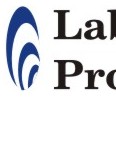 |
 |
 |
 |
 |
|
 |
 |
 |
 |
 |
|
 |
 |
 |
 |
 |
|
 |
 |
 |
 |
 |
|
 |
 |
 |
 |
 |
|
Extracts from the BASIC CONDITIONS OF EMPLOYMENT ACT, 75 of 1997: |
|
CONTENTS Chapter Three: Leave
EXTRACTS CHAPTER THREE LEAVE 19. Application of this Chapter (1) The provisions of this Chapter do not apply to an employee who works less than 24 hours a month for an employer. (2) Unless an agreement provides otherwise, the provisions of this Chapter do not apply to leave granted to an employee in excess of the employee's entitlement under this Chapter. (1) In this Chapter, "annual leave cycle" means the period of 12 months' employment with the same employer immediately following- (a) an employee's commencement of
employment; or (2) An employer must grant an employee at least- (a) 21 consecutive days' annual leave on
full remuneration in respect of each annual leave cycle; or (3) An employee is entitled to take leave accumulated in an annual leave cycle in terms of subsection (2) on consecutive days. (4) An employer must grant annual leave not later than six months after the end of the annual leave cycle. (5) An employer may not require or permit an employee to take annual leave during- (a) any other period of leave to which
the employee is entitled in terms of this Chapter; or (6) Despite subsection (5), an employer must permit an employee, at the employee 's written request, to take leave during a period of unpaid leave. (7) An employer may reduce an employee's entitlement to annual leave by the number of days of occasional leave on full remuneration granted to the employee at the employee's request in that leave cycle. (8) An employer must grant an employee an additional day of paid leave if a public holiday falls on a day during an employee's annual leave on which the employee would ordinarily have worked. (9) An employer may not require or permit an employee to work for the employer during any period of annual leave. (10) Annual leave must be taken- (a) in accordance with an agreement
between the employer and employee; or (11) An employer may not pay an employee instead of granting paid leave in terms of this section except- (a) on termination of employment; and (1) An employer must pay an employee leave pay at least equivalent to the remuneration that the employee would have received for working for a period equal to the period of annual leave, calculated- (a) at the employee's rate of
remuneration immediately before the beginning of the period of annual
leave; and (2) An employer must pay an employee leave pay- (a) before the beginning of the period of
leave; or (1) In this Chapter, "sick leave cycle" means the period of 36 months' employment with the same employer immediately following- (a) an employee's commencement of
employment; or (2) During every sick leave cycle, an employee is entitled to an amount of paid sick leave equal to the number of days the employee would normally work during a period of six weeks. (3) Despite subsection (2), during the first six months of employment, an employee is entitled to one day's paid sick leave for every 26 days worked. (4) During an employee's first sick leave cycle, an employer may reduce the employee's entitlement to sick leave in terms of subsection (2) by the number of days' sick leave taken in terms of subsection (3). (5) Subject to section 23, an employer must pay an employee for a day's sick leave---- (a) the wage the employee would
ordinarily have received for work on that day; and (6) An agreement may reduce the pay to which an employee is entitled in respect of any day's absence in terms of this section if- (a) the number of days of paid sick leave
is increased at least commensurately with any reduction in the daily
amount of sick pay; and
(1) An employer is not required to pay an employee in terms of section 22 if the employee has been absent from work for more than two consecutive days or on more than two occasions during an eight-week period and, on request by the employer, does not produce a medical certificate stating that the employee was unable to work for the duration of the employee's absence on account of sickness or injury. (2) The medical certificate must be issued and signed by a medical practitioner or any other person who is certified to diagnose and treat patients and who is registered with a professional council established by an Act of Parliament. (3) If it is not reasonably practicable for an employee who lives on the employer's premises to obtain a medical certificate, the employer may not withhold payment in terms of subsection (1) unless the employer provides reasonable assistance to the employee to obtain the certificate. 24. Application to occupational accidents or diseases Sections 22 and 23 do not apply to an inability to work caused by an accident or occupational disease as defined in the Compensation for Occupational Injuries and Diseases Act, 1993 (Act No. 130 of 1993), or the Occupational Diseases in Mines and Works Act, 1973 (Act No. 78 of 1973), except in respect of any period during which no compensation is payable in terms of those Acts. (1) An employee is entitled to at least four consecutive months' maternity leave. (2) An employee may commence maternity leave- (a) at any time from four weeks before
the expected date of birth, unless otherwise agreed; or (3) No employee may work for six weeks after the birth of her child, unless a medical practitioner or midwife certifies that she is fit to do so. (4) An employee who has a miscarriage during the third trimester of pregnancy or bears a stillborn child is entitled to maternity leave for six weeks after the miscarriage or stillbirth, whether or not the employee had commenced maternity leave at the time of the miscarriage or still birth. (5) An employee must notify an employer of the date on which the employee intends to - (a) commence maternity leave; and (6) Notification in terms of subsection (5) must be given- (a) at least four weeks before the employee intends to commence maternity leave; or (7) The payment of maternity benefits will be determined by the minister subject to the provisions of the Unemployment Insurance act, 1966 (Act No. 30 of 1966) 26. Protection of employees before and after birth of a child (1) No employer may require or permit a pregnant employee or an employee who is nursing her child to perform work that is hazardous to her health or the health of her child. (2) During an employee's pregnancy, and for a period of six months after the birth of her child, her employer must offer her suitable alternative employment on terms and conditions that are no less favourable than her ordinary terms and conditions of employment, if- (a) the employee is required to perform
night work, as defined in section 17(1) or her work poses a danger to
her health or safety or that of her child; and 27. Family responsibility leave (1) This section applies to an employee- (a) who has been in employment with an
employer for longer than four months; and (2) An employer must grant an employee, during each annual leave cycle, at the request of the employee, three days' paid leave, which the employee is entitled to take- (a) when the employee's child is born;
(3) Subject to subsection (5), an employer must pay an employee for a day's family responsibility leave- (a) the wage the employee would
ordinarily have received for work on that day; and (4) An employee may take family responsibility leave in respect of the whole or a part of a day. (5) Before paying an employee for leave in terms of this section, an employer may require reasonable proof of an event contemplated in subsection (1) for which the leave was required. (6) An employee's unused entitlement to leave in terms of this section lapses at the end of the annual leave cycle in which it accrues. (7) A collective agreement may vary the number of days and the circumstances under which leave is to be granted in terms of this section. >> Labour Law |
|
|National Assistance: 0860 LABOUR/ 0860 522687
|
||||
| To join... | ||||
| (the Membership Fee is only R85pm): | ||||
|
||||